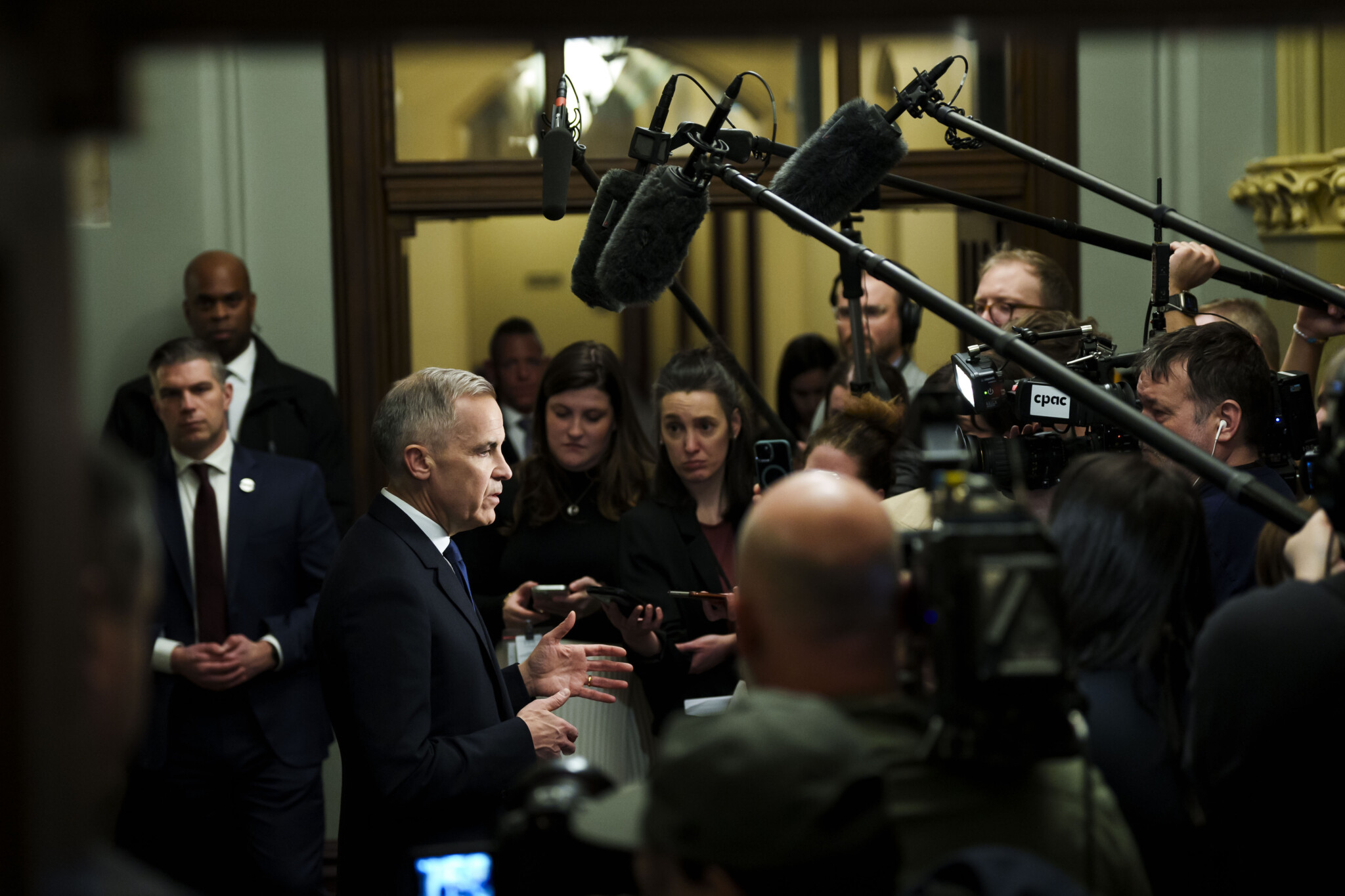Canada’s largest legacy media outlets won’t commit to proactively disclosing if they’ve received government-mandated payments from the Canadian Journalism Collective (CJC) during the federal election campaign.
As previously reported by The Hub, Canadian news outlets have begun receiving millions in cash payments from the Collective, as the Liberal government responsible for the payments seeks a fourth term.
The CJC is a non-profit organization selected by Google to parcel out $100 million in annual payments the tech giant is required to make to media outlets in order to comply with the Liberal government’s Online News Act (Bill C-18)—the same legislation that prompted Meta to block news sharing on Facebook and Instagram in Canada.
At the time of its introduction, the government said the act “aims to ensure that dominant platforms compensate news businesses when their content is made available on their services.”
“In 2022, online advertising revenues in Canada were $14 billion, with two platforms receiving roughly 80 percent of these revenues. While digital platforms earn billions in online advertising, more news outlets shutter each year, due in large part to a loss of advertising revenue.”
The Collective publicly disclosed that it began dispersing payments to eligible outlets on March 11, and intends to finish the initial dispersals by the end of this month, with the next round of payments set to be handed out this summer. While it has committed to releasing a list of outlets and payment amounts within approximately 30 days of distributing the funds, that timeline likely means the full details of the initial dispersal won’t be public until the election campaign is over.
How much is the media receiving?
The Hub reached out to Canada’s largest legacy media organizations—Postmedia (which owns the National Post, the Toronto Sun and several municipal dailies), Torstar (which owns the Toronto Star), the Globe and Mail, Bell Media (which owns CTV News), Corus Entertainment (which owns Global News), and Rogers Sports & Media (which owns CityNews)—to ask:
1. Have they or any of their subsidiaries received payments from the Collective?
2. If yes, how much have they received?
3. Do they plan on disclosing the receipt of the money to their audience during the election?
None of the organizations committed to proactively disclosing Collective payments to the public.
A Rogers Sports & Media spokesperson told The Hub the company has “nothing to share as we haven’t received payment nor do we know how much we’re receiving.”
A Bell Media spokesperson said the conglomerate has “not yet received any funding from the Canadian Journalism Collective, and aren’t aware of how much we will receive or when.”
A Torstar spokesperson said, “We do not know the total amount to be paid to Torstar. We understand that the amounts paid, once finalized, will be made public by the CJC. Further questions about the process are best directed to the CJC.”
A Corus Entertainment spokesperson said, “I can confirm that Corus has not received payment from the Canadian Journalism Collective.”
The Globe and Postmedia did not respond to The Hub’s multiple inquiries.
The Hub also reached out to the Collective itself but did not receive a response by deadline. They were asked if the public would be made aware of which outlets are receiving payments by the end of the campaign, and if they think this could affect the public’s perception of the news media; whether they think this information should be part of the public record, given that C-18 is being contested. They also did not answer our questions around how much money in full is being distributed in their first round of funding.
As was also mentioned in The Hub, Canada’s legacy media has a major financial stake in the outcome of the election.
Over its three terms, the current Liberal government created large-scale public subsidies for news journalism to the tune of hundreds of millions of dollars.
News Media Canada, a lobby group for newspaper publishers, has claimed subsidies are essential given that “there is less and less information about the things that matter most to the lives of people in communities across Canada—coverage of what local governments are doing, what crimes have occurred in our midst, or what subjects are being taught in our schools.”
Last year, federal subsidies for the private and non-profit media totaled more than $325 million between the Canada Periodical Fund ($86.5 million), Canada Media Fund ($154.1 million), Local Journalism Initiative ($19.6 million), and the Canadian Journalism Labour Tax Credit ($65 million).
These figures are in addition to Google’s mandated $100 million annual contribution under the Online News Act.
The Liberals’ main political opponent, Pierre Poilievre’s Conservative Party, is meanwhile promising to defund Canada’s public broadcaster CBC and reform subsidies for broadcast and digital news, although the specifics are not clear as to if they plan to cut subsidies entirely or change CRA eligibility to allow more alternative media to access the funds. Poilievre has also spoken out against the Online News Act. The full details will likely appear in their upcoming platform.
The Hub is committed to transparency
In contrast to the legacy media, The Hub proactively disclosed to its readers that it received a payment of $22,248.58 from the Collective on March 24, and announced that it donated an amount equal to the initial payment to charity.
The Hub selected March of Dimes Canada to support its work of “empowering people with disabilities to live and thrive in communities nationwide.”
The publication also pledged to donate an amount equal to all future funds granted from the CJC to Canadian charities.
It provided its readers with financial documents showing the receipt and donation of funds.
The Hub is in compliance with all of its obligations pursuant to its recipient agreement, the Online News Act, and the Online News Act Application and Exemption Regulations and therefore acknowledges that the majority of funds received from the CJC have gone to and must go to production of local, regional and national news content. That is why The Hub made the donation from its general revenues apart from the funds received from the CJC.

The Hub is a signatory of the Ottawa Declaration, which calls on private news media to reject all government funding for their journalism, viewing them as both something that affects public trust in media and stunts media innovation.
EDITOR’S NOTE: This article was revised to correct any inadvertent representations around The Hub’s characterization of its use of CJC funds.









